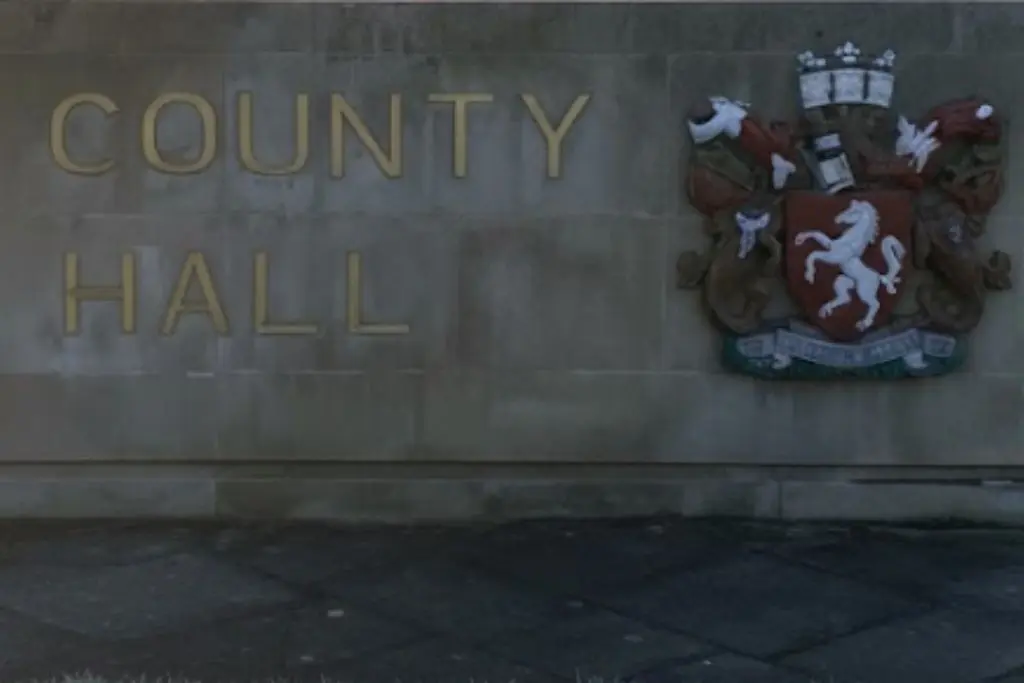Kent County Council (KCC), now run by Reform UK, faces a severe money crisis, making a maximum council tax rise and major service cuts seem “unavoidable.” This stark warning comes just months after the party, led by Councillor Linden Kemkaran, took power promising to save money without hitting local residents’ pockets.

The council tax increase, which is widely expected to be the highest allowed – nearly five per cent – is needed to close a massive financial gap. KCC officials estimate this gap could be as large as £81 million in the next financial year (2026/27). This admission marks a clear and sudden change for the Reform UK group, which had promised to make local government spending much more efficient.
The Big Money Problem and the Change in Plans
Reform UK won full control of Kent County Council in the local elections of May 2025. They ended many years of Conservative control. The party ran on a bold plan, promoting KCC as a model for how a Reform government would work across the country. A key part of their plan was setting up a Department of Local Government Efficiency (DoLGE). This unit was supposed to cut wasted money and find tens of millions in savings, copying methods used in private business.
However, the difficulties of running one of England’s biggest county councils, with a budget of over £2.5 billion, quickly became clear. Senior Reform leaders now admit that key public services are already running on very little, and the council has no choice but to ask Kent residents for more money.
In a frank statement showing the change in direction, Diane Morton, KCC’s Reform Cabinet Member for Adult Social Care, confirmed that a five per cent tax increase was highly likely. She stated: “We’ve got more demand than ever before and it’s growing. We just want more money.” This statement, along with Cllr Kemkaran’s earlier warnings about “difficult decisions,” sets the scene for a difficult vote on the new budget.
What the Tax Rise Means for Services
A 4.99 per cent tax rise would add about £80 to £85 to the annual bill for the average Band D home in Kent. This would push the council’s part of the bill above £1,775 each year. This potential rise is particularly hard because it follows a similar near-five per cent rise that was passed in the 2025/26 financial year. If this latest hike goes ahead, KCC is set to collect over £1 billion in council tax for the first time.
The main reason for the financial hole is the rapidly increasing cost and demand for services that the council must provide by law.
- Adult Social Care: This area uses the largest part of KCC’s budget, over 40 per cent. It faces constant cost increases, especially in paying care providers. These costs have gone up because of rises in the National Living Wage and National Insurance.
- Children’s Services and School Transport: The money needed for children with Special Educational Needs and Disabilities (SEND), particularly for getting them to and from school, has increased sharply. The council has struggled to manage large overspends in this area for several years.
Because the council must protect these legal services, any savings have to come almost entirely from non-essential services—those the council is not legally required to provide. The council’s deputy leader, Peter Oakford, previously warned that KCC was close to only being able to provide the mandatory services.
Non-essential services now at risk of being cut or reduced include:
- Roads: Less spending on routine road maintenance and fixing potholes.
- Community and Youth Services: Cuts to local centres and support schemes for young people.
- Environmental Programmes: Stopping or delaying certain long-term net-zero green energy programmes. The Reform group claims this could save millions.
- Culture: Areas like libraries and arts projects usually see cuts when the council needs to put core services first.
Why the Crisis is Happening
Kent’s money troubles reflect a national problem with how local government is funded. While KCC has received some extra funding from the central government, council leaders argue that the increase in spending needed – especially the £150 million needed just to meet demand – is much higher than the money they are given.
The council has already had to find almost £1 billion in savings and new income since 2011. This shows the long-term pressure on local councils across the UK. The biggest causes are the rising number of elderly people needing care and the general cost of living driving up what the council has to pay its providers.
Political Arguments Trouble the Budget
The budget planning process has been made worse by major internal arguments within the ruling Reform UK party. Council Leader Linden Kemkaran has been heavily criticised after video footage from an internal meeting was leaked. The recording showed deep arguments, with Kemkaran reportedly shouting at and muting councillors who disagreed with her. She allegedly told them they would have to “fucking suck it up” if they did not like her decisions.
This argument led to several Reform councillors being suspended or kicked out of the party. This has significantly reduced Reform’s majority on the council. Other political parties have accused the administration of being too focused on internal fights to govern properly.
The Liberal Democrat leader, Antony Hook, called the situation a “total shambles.” The Conservative leader, Harry Rayner, said the council had become a “laughing stock.” Even the Fire Brigades Union (FBU) warned that the “disarray” was risking public safety after key members of the Fire and Rescue Authority were suspended.
Despite the pressure, Cllr Kemkaran has defended her tough leadership style. She insists it is necessary to manage a large council and focus on fixing the budget. She maintains that the administration is still united and committed to finding a solution, even if that solution is a maximum tax increase they once promised to avoid.
The money struggles at Kent County Council show the extreme challenges facing local governments across the UK. Demand for essential services keeps rising, but funding from the central government is not keeping up. This leaves councils with little choice but to charge local people the maximum amount and severely cut non-essential services.


